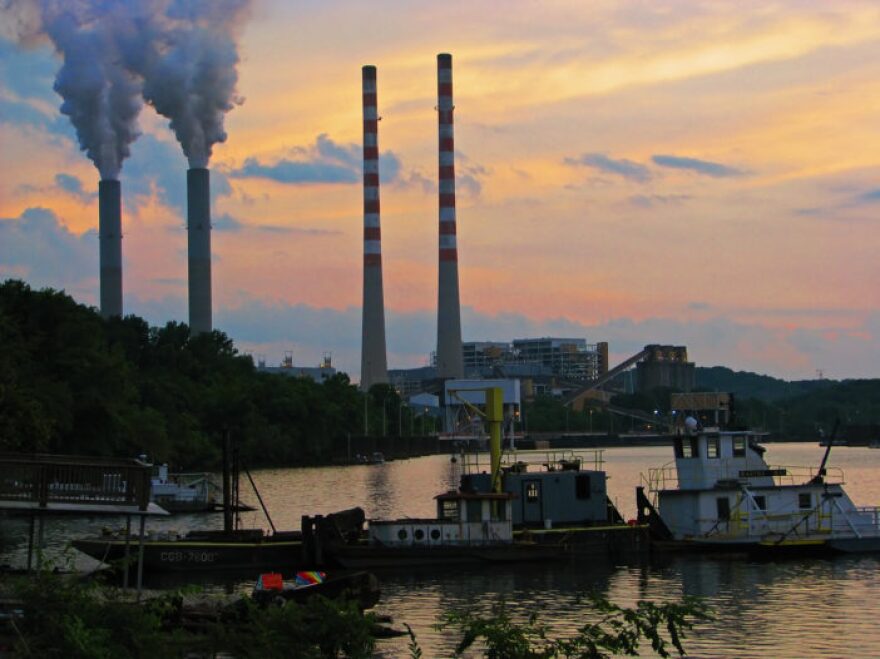Jeff Lyash, the CEO of the Tennessee Valley Authority, could finalize a recommendation to build a new natural gas plant west of Nashville as soon as Monday.
Since the TVA Board voted to give this decision-making power solely to Lyash back in 2021, only three things could change the outcome: the Environmental Protection Agency uses its legal authority, President Biden intervenes, or TVA has a change of heart.
In a statement to WPLN, TVA said they want to create a carbon-free energy future during this “generational transition.” This comes just days after the federal utility issued rolling blackouts related to coal and gas failures during the Arctic storm.
TVA has not provided any indication that they would be slowing their gas plans, even as stakeholders ask more federal agencies to get involved.
On Thursday, more than 100 organizations submitted a letter to EPA urging the agency to take this issue to the executive branch. This list of signatures includes environmental groups, like the Sierra Club and Appalachian Voices, faith-based groups, like Alabama Interfaith Power & Light, and medical groups, like the Alliance of Nurses for Healthy Environments.
“The EPA can either use its legal power to advance the clean energy economy or, given the alternative of no action, can needlessly sign off on dangerous fossil fuel expansion,” the letter reads.
This power relies on two pieces of legislation.
How EPA could halt TVA’s gas plans
In 1970, Congress enacted the Clean Air Act and the National Environmental Policy Act to combat air pollution and create environmental protections for major federal actions. President Richard Nixon, in the same year, established the EPA.
To encourage accountability, the National Environmental Policy Act formed the Council on Environmental Quality, the agency tasked to deal with flimsy or misleading environmental reviews for regulations or projects like new energy infrastructure.
The Clean Air Act requires the EPA Administrator to involve the Council on Environmental Quality if they determine an environmental review is “unsatisfactory from the standpoint of public health or welfare or environmental quality,” the legislation states.
“It’s actually part of their mandate,” said Dorothy Slater, the climate research director with the Revolving Door Project. The group organized the letter to EPA and is part of the progressive think tank Center for Economic and Policy Research.

EPA determined, last summer, that TVA did not meet requirements under the National Environmental Policy Act for the proposed gas plant at the Cumberland Fossil Plant site, where TVA will fully shutter its largest coal plant by 2028. In comments to TVA, EPA requested that the utility “transparently disclose” the modeling methodologies and assumptions used to make claims, including the costs of both a new natural gas plant and a solar-plus-storage project.
The final environmental review did not provide this data, and it left out many environmental costs. Natural gas plants require drilling, often in the form of fracking, pipelines and methane burning. People living near drilling sites have increased health risks — a recent study from Yale University linked children living near fracking wells to leukemia – and people living near gas pipelines face risks of fires and explosions.
There is also growing evidence that natural gas plants cause more climate change than previously understood. A recent study with satellite imaging estimated that methane emitted by oil and gas facilities during leaks or maintenance operations comprise roughly 8% to 12% of all oil and gas methane emissions. In its environmental review, TVA cites an American Gas Association estimate that upstream methane accounts for 1% of total emissions and claimed that fossil fuel companies are mitigating the problem.
Under this industry assumption, the total life cycle social cost of greenhouse gas emissions for gas will still be about $10.5 billion more than that of solar, according to one of TVA’s own analyses provided in the final environmental review.
EPA recommended last summer that TVA modify its gas plan or pick a different option “because of the urgency of the climate crisis.” A reasonable next step is to intervene, according to Slater.
“They’ve already said, ‘This is concerning. The emissions aren’t being tracked. We’re not sure this is the cheapest option,’” Slater said. “This would be a way for them to take those comments…and actually do something official and formal about it.”
Slater argued that this is a scenario that doesn’t rely on Sen. Joe Manchin or getting enough Senate votes. The TVA Board, which acts as the main oversight to TVA, had six appointees confirmed to its nine-person body by the Senate last month, after being short-staffed with Trump appointees only for nearly two years, for example.
EPA has the ability, and is technically required, to take this case to the Council on Environmental Quality.
But the EPA could escalate this issue even higher up the political ladder, given that TVA’s gas plans contradict an executive order to make the electricity sector carbon pollution-free by 2035.
So, the agency could bring this decision directly to the desk of President Biden.





